May 17, 2025 | 02:07 GMT +7
May 17, 2025 | 02:07 GMT +7
Hotline: 0913.378.918
May 17, 2025 | 02:07 GMT +7
Hotline: 0913.378.918
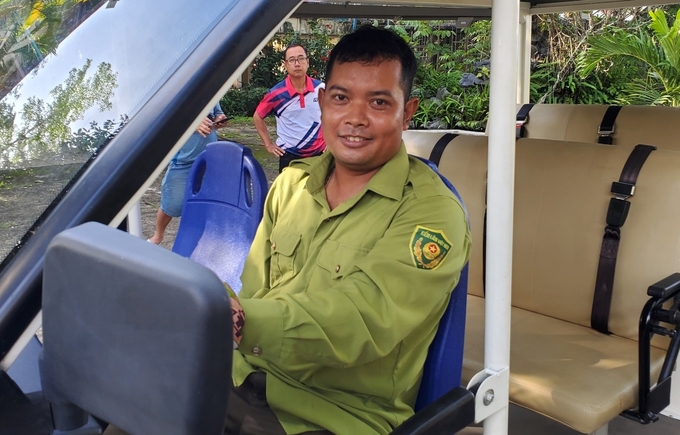
Mr. Y Sim, ranger cum tour guide at Yok Don National Park. Photo: Bao Thang.
Among the current 10 elephants living in Yok Don National Park, Thong Ngan is the youngest. Born in 1995, he must have called Y Khun (1956) or Bun Kham (1965) uncles or even grandma. The two nearest generations to Thong Ngan, namely H’Plo (1975) and Kham Phanh (1976), could also be old by half as much as his age.
Whoever watches or researches elephants can acknowledge how brutal male elephants can be when they enter the oestrus cycle. Once a year, the male elephant falls into the state of musth (aggressiveness) as the concentrations of testosterone and aggressiveness surge within a few months. The high concentration of testosterone relates to mating, resulting in fluid secreted from the elephants' temporal glands trickling down their faces. Male elephants at this stage tend to urinate all over their legs.
When an elephant becomes robust, no one dares get close to him. Even the mahouts must be cautious.
In nature, the male elephant can take the lead position in the herd during the oestrus cycle, even if it is not the oldest one. The fights over a female elephant can go on for several days, becoming increasingly violent. Losers sometimes have to accept the dire outcome of losing their tusks or having their tails bitten off. These are all permanent, irreversible injuries.
In Yok Don National Park, these fights do not happen, so Thong Ngan faces other struggles. The used-to-be little elephant that migrated from Tanh Linh one day has found it difficult and unacceptable to mate with other older female elephants.
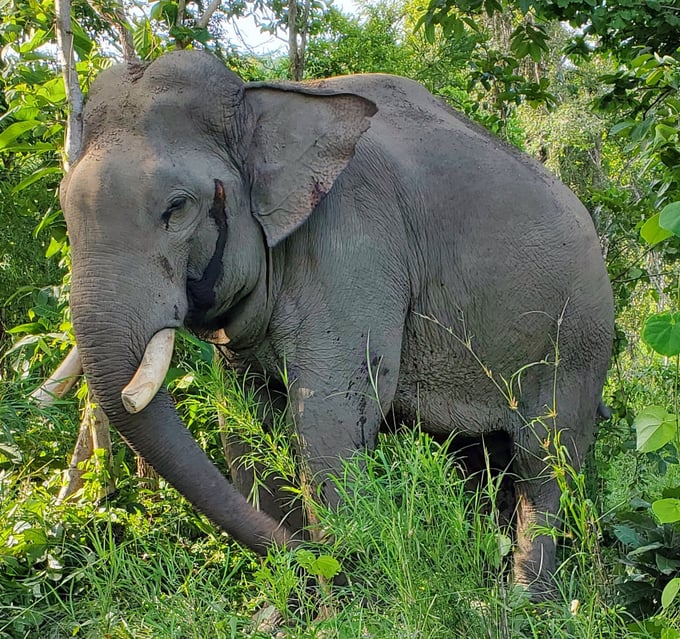
The Bac Plang elephant is in estrus, the fluid gland flows from the temporal gland down to the face. Photo: Bao Thang.
On the contrary, the females also find it hard to accept Thong Ngan. The first reason is his inherent character. Female elephants only accept mating when they like or they would run or fight. The other reason should be age, as most female elephants in the Yok Don are at the age of 45 so they are almost no longer able to reproduce.
Previously, when there is no program in detail was introduced, elephants must be engaged in several works, and the possibility of becoming pregnant becomes a problem. In 2018, when Yok Don National Park in collaboration with Animals Asia Foundation -AFF implemented an elephant-friendly tourism model, its physical condition was improved, but mating is still an unsolved problem.
Every time when the fluid flow over Thong Ngan’s face, it hurts Y Siem. The forest ranger and tour guide is busy preparing food the elephants prefer such as sugar cane, and banana. Then he goes deep into the forest to choose a huge and firm tree trunk with favorable leaves surrounding it to tie the elephant to avoid the risks of he could be out of control.
Following every step of Thong Ngan in Yok Don, the ranger who graduated from Dak Lak College of Pedagogy once dreamed of his big guy having more opportunities to interact with wild elephants. However, the reality is the opposite. There are about 40 wild elephants in more than 110,000 hectares of Yok Don National Park, but all of them discriminate against domestic elephants. Whenever detecting an individual with "human smell", forest elephants will chase it away, even violently attack.
As intelligent animals, forest elephants live in groups with a clear hierarchy. Each generation in the herd is about 20-25 years apart. “Perhaps they have told each other about the story of elephants catching wild elephants before. So until now, domestic elephants can't find a common voice," Y Siem said with a sad smile.
At the third meeting for the term 2021-2026, the People's Council of Dak Lak province approved a resolution amending and supplementing a number of articles of Resolution 78/2012/NQ-HDND dated December 21, 2012, on policies of elephant conservation. Accordingly, the province stipulates to support 500,000 VND/female elephant owners a day and 600,000 VND/male elephant owners a day during 30 days of elephant meeting and mating. During pregnancy and childbirth, support 300,000 VND/day in the first 10 months of pregnancy; 600,000 VND/day from the 11th month of pregnancy to the sixth month after the elephant gives birth to female elephant owners.
In total, if the female elephant becomes pregnant (from 22-24 months) and gives birth, the elephant owner can receive about 400 million VND. In addition, the mahout who take care of elephants during mating, breeding, and rearing also receive a support of 200,000 VND/day for 29 months for female elephant mahout and 30 days for male elephant mahout.
In order to limit conflicts between elephants and people, Dak Lak province also prioritizes localities where wild elephants often show up. Specifically, these areas are allowed to set up protection groups, each with no more than 10 members to monitor and supervise the movement of elephants and organize to chase away destructive elephants. Each group receives 20 million VND and each member receives 5 million VND/year.
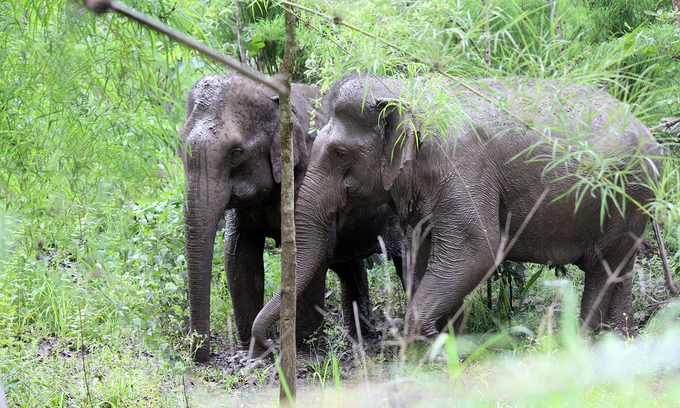
The elephants namely H'Blu and Kham Brake live in the National Park. Photo: YD.
Organizations, households, and individuals living and producing in areas where wild elephants reside or move when attacked by elephants will be supported with 100% of damaged property value and 100% of medical examination and drug treatment spending for wounds caused by elephants. At the same time, the individual is entitled to the occupational accident insurance regime for the damaged health rate.
Previously, the People's Committee of Dak Lak province agreed for the Elephant Conservation Center to implement the topic "Research on the fertility of domesticated elephants in Dak Lak" to determine the fertility of the elephant herd, and propose solutions to improve the fertility of domestic elephants. A rare number of domestic elephants successfully conceive, but the baby elephants all die during reproduction. The cause is thought to be that the female elephant is too old to produce a baby elephant.
We put on the issue, the situation of tying one’s food to a tree trunk like that of Thong Ngan occured a few, Yok Don National Park staff introduced to Mr. Y Lit, whose house is located in Krong Na commune, about 15 minutes by car from the Park.
Y Lit's family has a tradition of hunting elephants, for several generations, as he told. Visiting his family, next to the spacious new house built of bricks, there was still a wooden house in a solemn corner with an armchair, a few large ropes, and a few items for hunting elephants. Y Lit said that these items are not in use now, so they should be folded into one place into a mini "museum". Particularly, the rope was introduced by him to be a feat of healthy male buffalo skin, soaked in water for 6 months and then dried for 6 months, the braid is ensured to keep the elephant without breaking.
After being around for an hour without seeing any elephants, we asked and learned that Bac Plang the elephant owned by Y Lit was being sent to the Ecotourism Area of Ban Don - Anh Duong. Despite our anticipation, we were still surprised when we met this male elephant. It was in estrus, breathing heavy and fast, and fluid trickling down from its ears to its face.
Bac Plang has to be sent to the area once a year, as fast as a month. Y Lit said that during estrus, elephants were not eager to eat or drink. They are almost "insensitive" to outside agents.
In 1983, the famous musician Pham Tuyen went to work in the Buon Don (district) in order to find inspiration for his children's music. During that time, the musician was impressed by the 6-7-month-old elephant that was confined in the corner of the home. Villagers discovered a missing baby elephant at the fringe of the forest. Consequently, he served as the inspiration for the composition "The baby elephant in Don Hamlet."
However, approximately six months after the song's release, this elephant died due to weak resistance, refusal to consume, and unfamiliarity with village life. The reproduction of newborn elephants from domestic elephants becomes even more imperative in light of this problem.
Translated by Linh Linh

(VAN) Vietnam's draft amendment to Decree No. 156 proposes a mechanism for medicinal herb farming under forest canopies, linking economic development to population retention and the sustainable protection and development of forests.

(VAN) In reality, many craft village models combined with tourism in Son La have proven effective, bringing significant economic benefits to rural communities.

(VAN) The international conference titled Carbon Market: International experiences and recommendations for Vietnam was successfully held recently in Ho Chi Minh City.

(VAN) According to the Project on rearranging provincial and communal administrative units, in 2025, the country will have 34 provinces/cities, 3,321 communes, wards, and special zones, and no district-level organization.
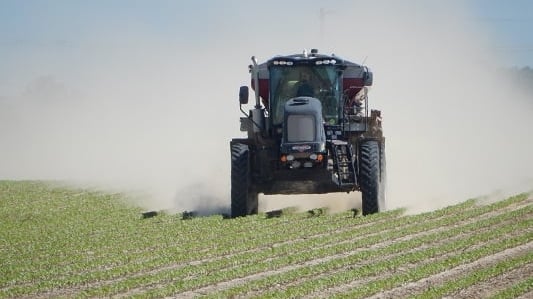
(VAN) The vice president of fertilizer with Stone X Group says the Trump administration’s tariffs are impacting fertilizer markets.
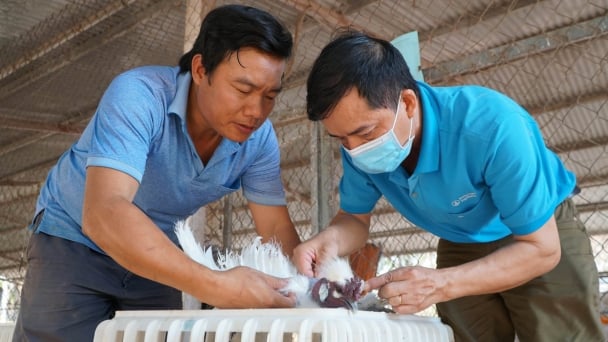
(VAN) Resolution 57 offers Vietnam a significant opportunity to narrow the global genetic technology disparity and convert its extensive genetic resources into commercial advantages.

(VAN) The Ministry of Agriculture and Environment will prioritize the implementation of five core and breakthrough solutions in science and technology, in addition to the seven groups of tasks identified in Decision No. 503.